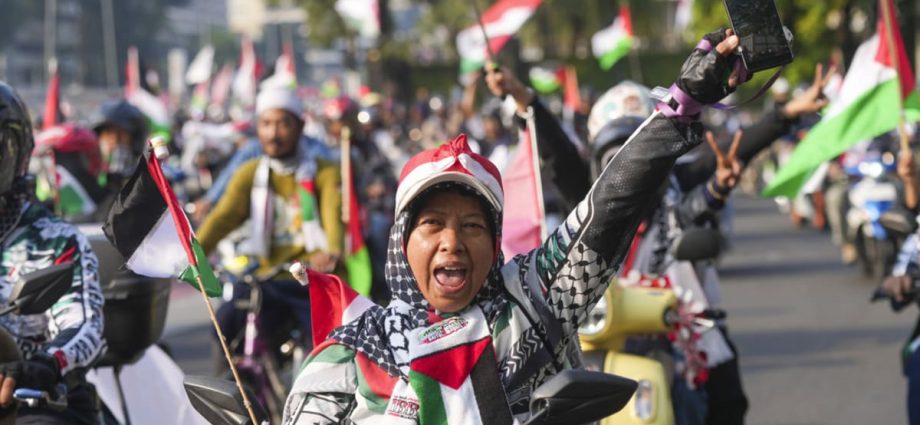
In his Instagram caption, Mr Zainul said they spoke about the Hamas-Israel conflict and relations between Indonesia and Israel.
The post went viral with public anger and condemnation that forced Mr Zainul to disable the comments section of his account. He has since deleted the post.
Mdm Hurriyah, a political lecturer at the University of Indonesia, who like many Indonesians goes by one name, said that the trip provoked such strong reactions because it “was held amid Israel’s genocide, and the Indonesian government has condemned it.”
About 39,000 people have been killed in Palestine since October, according to local health authorities.
Professor Asep Saepudin Jahar, chancellor of Universitas Islam Negeri (UIN) Syarif Hidayatullah Jakarta, who specialises in the sociology of Islamic law, said that the NU members had lacked sensitivity to the wider political situation.
“Even without war, a visit to Israel is a controversial matter (for Indonesians), let alone during war or attacks on Palestinian citizens.
“And they do not understand that they are being used or the situation is being politicised as it appears Israel wants to get support from Indonesian Muslims (by having the NU members in Israel),” he said.
On Jul 16, NU’s general chairman Yahya Cholil Staquf held a press conference at the organisation’s headquarters in Jakarta where he apologised for the uproar.
“Whatever happens, as the general chairman of NU, I apologise for the mistakes made by the NU members and on their behalf to the wider community.
“Hopefully, they (the wider community) are willing to forgive. Hopefully, it will not happen again,” said Mr Yahya, who was the subject of public criticism in 2018 for meeting with Israeli Prime Minister Benjamin Netanyahu.
As the quintet has different roles within NU, Mr Yahya said he would let the relevant parties decide how to proceed with the individuals who went to Israel.
Mr Sukron told CNA the trip was solely initiated by civil society and not sponsored by the (Israeli) government.
“We went to Israel not only to visit the president, but there were many other activities to help us better understand the situation and possibilities of how Indonesian civil society can help.
“From our perspective, since Indonesia has no diplomatic relations with Israel, therefore civil society must render a concrete contribution to cease the war, or at least reach an armistice between parties in conflict because the victims are always civilians,” he said.

